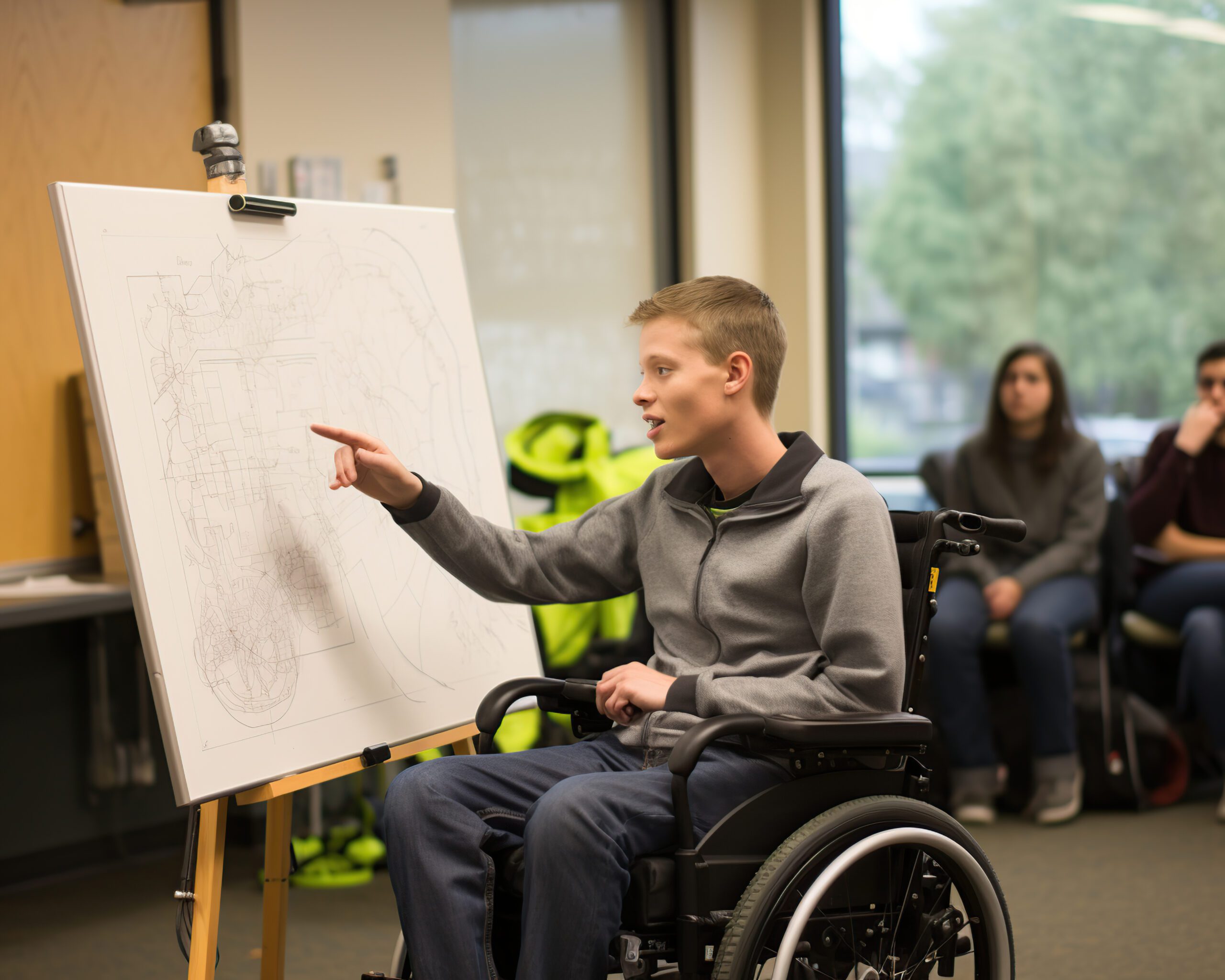Support workers offer people who are experiencing emotional difficulties, mental illness, or other health issues both practical and emotional support. A recognized qualification, appropriate training, and appropriate skills are required to become a competent and skilled support worker. In this blog, the steps of becoming a qualified support worker in Perth, Australia, will be discussed.
What is a Support Worker?
A support worker is someone who attends to people’s everyday needs for well-being. People who have a variety of physical and mental illnesses can rely on them for freedom. Support workers offer both physical and emotional assistance and do their best to help people realize their full potential. They help vulnerable individuals with daily duties to care for their overall well-being.
What is a Support Worker’s role?
- A support worker provides support for physical activities and emotional support for individuals and their families.
- A disability support worker helps disabled people to take care of these individuals, helping them perform their daily activities and personal care.
- A good support worker helps clients with health care needs, including routine checks or administrating medication.
- They also encourage and support the development of personal skills through hobbies and interests.
- A support worker teaches life skills, such as shopping, using public transport and paying bills.
- They work with other healthcare professionals and social workers to ensure that all care needs meet the highest possible standards.
Essentials to be a support worker
-
A strong certificate
To be a Support Worker, you need to get a professional certificate. In fact, this certificate can get you a good job and make you more competent in your job role. Mostly Certificate iii in individual support (aged care), cert 3 in community services and Certificate iii in individual support (disability) are the popular courses.
-
Training
Effective and relevant training to support workers is a sombre topic as it is about providing support workers with practical experience and learning opportunities they want and need. These trainings are important to upgrade the competency of support workers and to maintain the highest levels of care quality. Let’s look into some important training:
– Medication Training
To treat or manage a variety of medical illnesses or to promote their well-being, many people pursuing careers in support services need medication training. Understanding important drug information aids in proper management, storage, and administration. Medication can be found in a variety of formats, including liquid, capsules, and others. In addition, the safe administration of pharmaceuticals, comprehension of adverse responses and side effects, and use of dose administration devices must also be known to support staff.
Unlock Your Future in Business and Healthcare Today!
– Manual handling training(online)
Manual handling includes managing the services to be given to clients and other associated risks. Under the manual handling training, support workers are shown several demonstrative videos and involved in interactive activities of managing risk associated with hazardous manual tasks, personal care, mobility, transportation, and dressing/undressing.
Manual handling training will provide you with the knowledge to follow procedures to minimise the risk of injury and to utilise and implement strategies to improve the workplace. This training further prevents incorrect manual handling and the use of faulty equipment.
Online manual handling training is designed for a support worker to help clients in aged care, home care and the NDIS to improve their manual handling skills.
-
NDIS support worker training
The NDIS support worker training includes an overview of the NDIS, NDIS participant plans, goals and outcomes, an introduction to NDIS-funded supports, and the NDIS Pathway. NDIS training is a must to upskill support workers’ overall skills. The NDIS training is helpful to ensure support workers to get provide the highest standards of client care.
-
Disability support worker training
The Disability Support Worker Training Program equips support workers with the information and skills needed to assist those who have developmental impairments in living with dignity, participating in society, and enjoying life. With this training, support workers can learn more about how to offer support in a way that respects the individuality and dignity of each person they work with.
-
Family support worker training
Family support worker training provides families and children with services needed to have all family members establish respectful, collaborative relationships with themselves and the community.
With this training, support workers can experience and explore personal and professional values and practices to make a family stay strong. After completing family support training, the support worker will have an in-depth knowledge of communication skills, rapport building, and examining conflict resolution strategies.
-
Peer support worker training
Peer Support Worker training helps support workers to help people with formalised peer support and practical assistance. Peer support worker training helps to strengthen empathy and compassion and also builds trustable relationships.
Through their formal peer support worker training, the personal support worker can give the clients the feeling of hope, opportunities and belief in personal control and self-advocacy
-
Child support worker training
Child support workers’ training helps support workers in order to make support workers skilled to provide specialized care to at-risk, vulnerable children who lack access to a safe and supportive environment.
With the help of child support workers, a support worker can help kids with their daily needs and routines, help them develop positive self-perceptions, teach them how to have polite interactions, how to behave, about good/bad touch and many more.
-
Community support worker training
Through community support worker training, support workers can better assist clients with their emotional, financial, health, housing, and other community-related needs.
Additionally, community support worker training will help the support professionals to help clients to have a better future and help them tackle physical and mental challenges, addictions, young people and families, immigrants, and the homeless.
Flexibility, problem-solving, compassion, crystal-clear communication, and a positive outlook are skills you will have with community support worker training.
Major support worker courses
For international students, a disability support worker, as well as an aged care worker, can be beneficial in terms of pay and job opportunities. To be a support worker in Australia, you have to pursue two major support worker courses: Certificate 3 in individual support (disability) and Certificate 3 in individual support (aged care).
-
Certificate 3 individual support in Disability
Certificate 3 individual support in disability addresses work in the community and/or residential facilities under direct or regular supervision within clearly defined organisation guidelines and service plans. Certificate 3 individual support in disability has 14 units are required to earn this qualification, including 9 core units and 5 elective units.
In fact, with Certificate 3 of individual support in Disability, you will learn about working effectively with people having a disability, maintaining an environment to empower people with disabilities, supporting individual health and emotional well-being, and providing behaviour support in the context of individualised plans.
With a Certificate 3 individual support degree, you can become a disability service officer, you can work as a residential care officer, disability support officer, residential care support worker, disability support worker, family support worker, and many more.
You can study Cert 3 individual support in disability both online and in physical classes however those opting for the online course may have to spend more time on training/internship period.
After you will earn a Certificate 3 individual support in disability in Perth, you will enjoy an average salary of $37.60 per hour in Perth, WA.
-
Certificate 3 individual support in aged care
A Certificate 3 individual support in aged care teaches support workers to work primarily to maintain personal care and/or other activities of living for people in an aged care setting. The course has 14 units, where there are 10 core units and 4 elective units.
You can study Certificate iii individual support aged care in both online and physical classes at your convenience. In fact, in Certificate 3, individual support in aged care, you will learn about supporting older people to maintain their independence, participating in the implementation of individualised plans, delivering care services using a palliative approach, and many more while being culturally aware and respectful practice.
With a Certificate 3 individual support in aged care, you can become an accommodation support worker, home care assistant, in-home respite worker, personal care assistant, residential care worker, and many more.
After you will earn Certificate 3 of individual support in aged care and become a professional aged care worker in Perth, you can enjoy an average annual salary of $55,000 to $60,000.
Which is the perfect institution to pursue Certificate 3 individual support in Perth?
Perth is another popular city in Australia for international students. If you are an international student in Perth, you can go for Certificate 3 individual support in disability or aged care. There are numerous colleges offering the course, but you must look for the perfect one.
A perfect institution that delivers courses for disability support workers, as well as aged care courses in Perth, would possess the following characteristics:
- Offer an easy, smooth, and efficient application process for national and international students.
- Certified and trained facilitators in both theoretical and practical classes.
- A good internship program for students.
- Assure students with the right skills and competencies to contribute to their clients and community.
Why The Bright College is the best college to get Certificate 3 individual support in Perth?
Bright College is driven by the values of integrity, innovation, curiosity, and cooperation and is on a mission to foster, educate, and train young minds to become leaders of tomorrow.
At Bright College, we offer education and training for students to have strong academic performance along with other experiences. We also have a positive, interactive, innovative and enthusiastic learning environment, along with experienced trainers to prepare students to enter their desired industry.
At Bright College, we offer CHC33015 Certificate III in Individual Support in ageing, disability, home and community, as well as ageing, home and community. To fully earn this course with us, you must cover all the theoretical classes as well as complete at least 120 hours of work placement as detailed in the assessment requirements of the units of competency. In addition, we offer our Certificate III in Individual Support via Face-to-Face or physical classes for 3 days per week.
To know more about Certificate III in Individual Support at Bright College, Please contact us.




